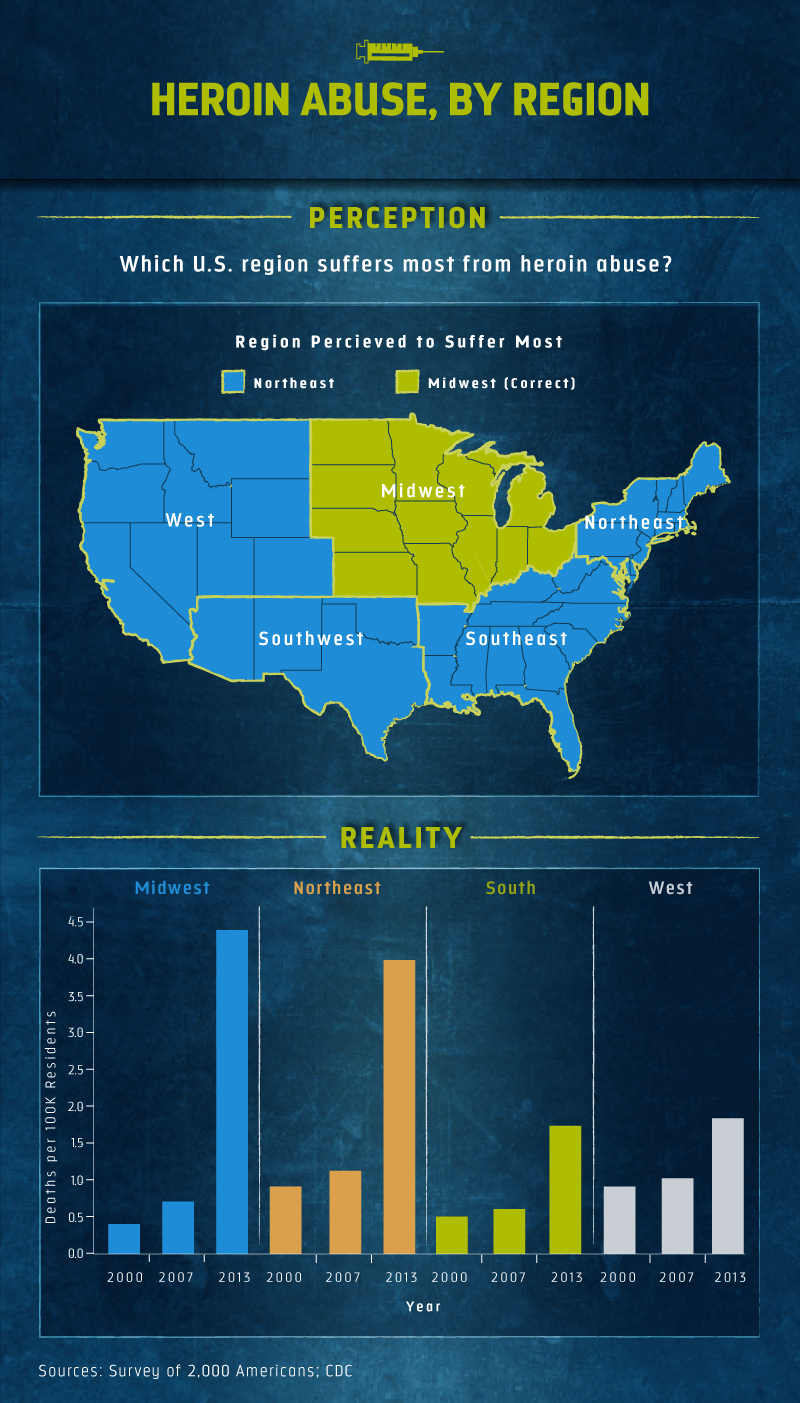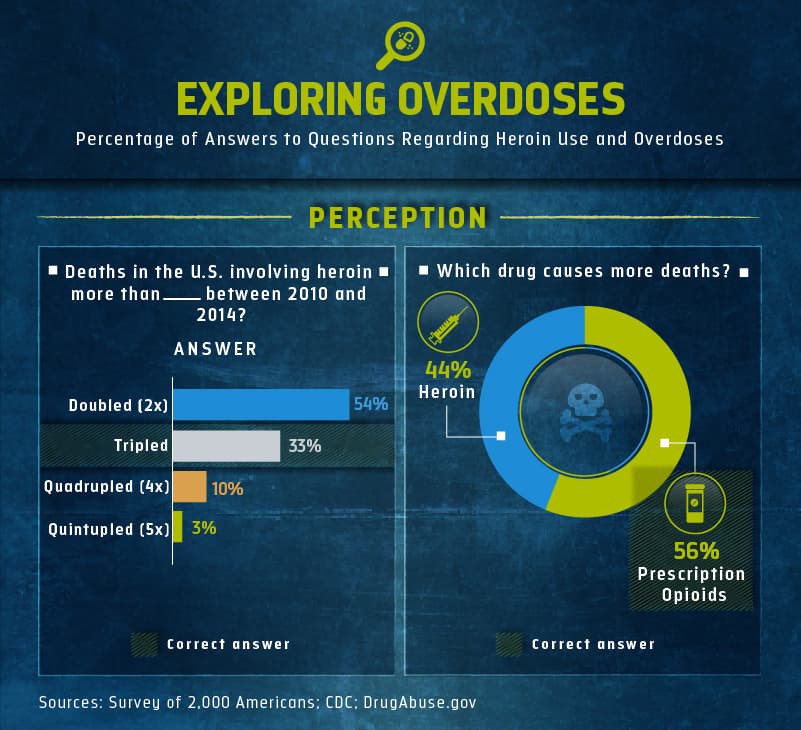The first step to addressing any problem is to realize that there is one.
Videos by Rare
As a recent survey conducted by Heroin.net about drug abuse in America shows that people across the nation have vague, seemingly reflexive and wrong assumptions about where heroin is hurting people the most, except for those living in the region most affected.
The survey asked 2,000 people from across America which U.S. region suffers the most from heroin abuse.
Respondents living in the West, Southwest, Southeast and Northeast all gave as a top answer that the Northeast is most affected.
Only respondents from the Midwest answered correctly that their own region suffered the most.

“Most of our respondents thought that the Northeast was hit the hardest: Those from the West, Southwest, Southeast, and the Northeast itself stated that this area was the most affected by the heroin crisis, while only those in the Midwest believed that the Midwest was the most affected,” the survey says.
“Indeed, the Midwest does slightly edge out the Northeast regarding the number of heroin-associated deaths per 100,000 residents. States such as Ohio, where at least 23 residents die of heroin-related causes weekly, are among the most affected by this epidemic of addiction,” it continued. “Ohio saw nearly 1,200 overdose-related deaths in 2014 that were connected to heroin use. Indiana cities have also seen a sharp rise in the number of cases of heroin overdoses, many of which have been fatal.”
Here’s was the percentage breakdown of survey participants:
Southeast U.S.: 25.61 percent
Northeast U.S.: 24.41 percent
Midwest: 24.16 percent
West: 16.33 percent
Southwest: 9.49 percent
Another finding of the survey worth thinking about is that while 87 percent of poll respondents “view drug abuse as a serious problem or even a crisis on the national level,” only 47 percent view it as a serious problem in their own backyard.
What is to explain this disconnect? Why is the Northeast the top answer across regions also affected by heroin, and does this affect how drug abuse is addressed?
The survey speculates that “it is possible that much of the public thinks of drug-related crime as a distant phenomenon that happens elsewhere in the nation, rather than in the immediate vicinity of their own neighborhood.”
For real families who have seen the worst, this is far from the truth.
The truth is, heroin-related overdoses and deaths tripled between 2010 and 2014 and are now approaching prescription opioid death rates.

In August, Rare released its own series on the heroin epidemic in America, speaking to the families devastated by loss, law enforcement on the ground, and public officials.
Heroin in America, a series by Rare
Over the course of that series, we spoke with mothers who lost their sons to heroin addiction in an effort to illustrate the lasting effects of heroin addiction and abuse, as well as the need to raise awareness of the problem.
Amanda Jordan spoke about her son Christopher Honor, who died from a heroin overdose on Sept. 5, 2015, two days after he was released from jail.
[protected-iframe id=”cb0aecb0304e7860334cdb4045ae0453-46934866-50986348″ info=”https://rumble.com/embed/vd8sl/” width=”640″ height=”360″ frameborder=”0″ allowfullscreen=””]
She recalled the day she picked up her son from jail and how quickly things all fell apart.
“I picked him up, he was doing good,” she said. “We went to breakfast, he applied for a job, happy as could be. We were going to go to the Patriots game [later that night].”
Instead of going to the game, her son ended up drinking during the day and using heroin that night.
On Sept. 5, Jordan got a knock on the door.
“‘Do you have a son, Chris?’” a police officer asked. “‘Well, he’s gone.’”
“And I said, what do you mean, he’s gone? She’s like, ‘He’s dead. He died,’” Jordan replied. “And at that minute I died, I just fell to the ground.”
Christopher Honor was 22.
Jordan spoke to Rare nearly eight months after her son’s death, saying that she feels drug addiction is a tough subject for people to talk about.
“I feel like a lot of people, they do turn their backs on the heroin addict, because it’s such a stigma,” she said.
Crystal Bissonnette, who spoke to us while her son Ryan was jailed because of his heroin use, expressed a similar concern.
“There seems to be blame going all over the place,” she said. “The hardest part for me […] was just being able to freely admit [that my son was addicted to heroin].”
Photo source: Flickr Creative Commons/Dimitris Kalogeropoylos



